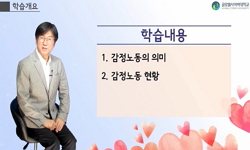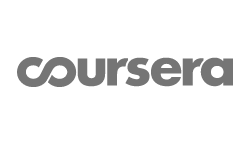In this study, we explore the effect of the perceived climate of opinion and the emotional responses to th poll reporting on voters` political participation during 2012 Presidential election in Korea. This study examines the relationship between diffe...
http://chineseinput.net/에서 pinyin(병음)방식으로 중국어를 변환할 수 있습니다.
변환된 중국어를 복사하여 사용하시면 됩니다.
- 中文 을 입력하시려면 zhongwen을 입력하시고 space를누르시면됩니다.
- 北京 을 입력하시려면 beijing을 입력하시고 space를 누르시면 됩니다.

대통령선거 후보 지지도 조사 결과에 대한 여론분위기 지각과 감정 반응이 유권자 정치참여에 미치는 효과 연구 = A Study on the Effect of the Perceived Climate of Opinion and the Emotional Responses to the Poll Reporting on Political Participation
한글로보기https://www.riss.kr/link?id=A99710253
- 저자
- 발행기관
- 학술지명
- 권호사항
-
발행연도
2013
-
작성언어
-
-
주제어
여론조사 ; 의견분위기 지각 ; 감정 ; 침묵의 나선 이론 ; 정치참여 ; poll reporting ; emotion ; political participation ; spiral of silence
-
KDC
0
-
등재정보
KCI등재
-
자료형태
학술저널
- 발행기관 URL
-
수록면
227-260(34쪽)
-
KCI 피인용횟수
11
- 제공처
-
0
상세조회 -
0
다운로드
부가정보
다국어 초록 (Multilingual Abstract)
In this study, we explore the effect of the perceived climate of opinion and the emotional responses to th poll reporting on voters` political participation during 2012 Presidential election in Korea. This study examines the relationship between different collective political perceptions induced by poll stories and willingness to publicly express political opinions based on the theory of spiral of silence. In addition, the study attempt to link four emotional such as joy, hope, sadness and anger to various public/private political participation. The data were collected from the experiment where the newspaper poll reports provided different winning conditions. The results showed no support for the main argument of the spiral of silence. We could not find the relationship between ma jority/minority perception and political participation. Yet, we found that the positive emotions, joy and hope, affected willingness to speak out candidate support and other private political participation. In the case of negative emotions like sadness and anger, these emotions were not related to the public outspokenness but were linked to the private political actions such as an interpersonal effort to drum up support for candidate. The varying roles of positive and negative emotions to the poll reports on public and private political participation were discussed.
참고문헌 (Reference)
1 김무곤, "미디어와 투표행동" 삼성언론재단 2001
2 양승찬, "한국의 선거 여론조사와 그 보도에 대한 이슈 고찰" 한국언론학회 3 (3): 83-119, 2007
3 양승찬, "제3자 효과 가설과 침묵의 나선 이론의 연계성: 여론조사 보도에대한 제3자 효과 지각과 공개적 의견표명과의 관계를 중심으로" 43 (43): 109-141, 1998
4 서희정, "제3자 관련 정보제공이 신문독자의 감정 유발에 미치는 영향에 관한 연구" 한국정치커뮤니케이션학회 (22) : 81-130, 2011
5 중앙선거관리위원회, "제18대 대선 투표율 분석 결과 공개"
6 이강형, "정치후보에 대한 유권자 감정 유발 요인 및 미디어 캠페인 활동의 효과에 관한 연구" 한국언론학회 50 (50): 337-365, 2006
7 나은경, "정서의 프레이밍: 경제 뉴스 보도 기사의 정서 반응 유발 효과" 한국언론학회 52 (52): 378-406, 2008
8 송현주, "정서와 정치 커뮤니케이션 연구" 한국언론학회 4 (4): 32-76, 2008
9 박성희, "인터넷 공간에서의 이슈 유형별 여론지각과 의견표명에 관한 연구: 인터넷 여론조사와 게시판을 중심으로" 한국언론정보학회 39 (39): 2007
10 이강형, "유권자의 정치후보에 대한 감정이 정치참여에 미치는 영향에 관한 연구" 한국언론학회 46 (46): 3-104, 2002
1 김무곤, "미디어와 투표행동" 삼성언론재단 2001
2 양승찬, "한국의 선거 여론조사와 그 보도에 대한 이슈 고찰" 한국언론학회 3 (3): 83-119, 2007
3 양승찬, "제3자 효과 가설과 침묵의 나선 이론의 연계성: 여론조사 보도에대한 제3자 효과 지각과 공개적 의견표명과의 관계를 중심으로" 43 (43): 109-141, 1998
4 서희정, "제3자 관련 정보제공이 신문독자의 감정 유발에 미치는 영향에 관한 연구" 한국정치커뮤니케이션학회 (22) : 81-130, 2011
5 중앙선거관리위원회, "제18대 대선 투표율 분석 결과 공개"
6 이강형, "정치후보에 대한 유권자 감정 유발 요인 및 미디어 캠페인 활동의 효과에 관한 연구" 한국언론학회 50 (50): 337-365, 2006
7 나은경, "정서의 프레이밍: 경제 뉴스 보도 기사의 정서 반응 유발 효과" 한국언론학회 52 (52): 378-406, 2008
8 송현주, "정서와 정치 커뮤니케이션 연구" 한국언론학회 4 (4): 32-76, 2008
9 박성희, "인터넷 공간에서의 이슈 유형별 여론지각과 의견표명에 관한 연구: 인터넷 여론조사와 게시판을 중심으로" 한국언론정보학회 39 (39): 2007
10 이강형, "유권자의 정치후보에 대한 감정이 정치참여에 미치는 영향에 관한 연구" 한국언론학회 46 (46): 3-104, 2002
11 양승목, "여론조사와 제3자 효과: 여론조사의 영향에 대한 국회의원의 제3자 지각을 중심으로" (18) : 6-28, 1997
12 정일권, "여론조사 보도가 여론지각과 의견표명에 미치는 효과에 관한 연구 : 성형수술을 중심으로" 한국소통학회 (11) : 157-194, 2009
13 성동규, "여론과 미디어" 한국언론진흥재단 75-171, 2010
14 양승찬, "사회시스템 성격을 고려한 침묵의 나선이론 연구: 의견분위기 지각과 공개적인 의견표명과의 연계성을 중심으로" (20) : 72-116, 1998
15 김동하, "박빙 여론조사 ‘홍수’… 네거티브 유혹 커진다"
16 이준웅, "대통령 후보에 대한 정서적 반응의 형성과 정치적 효과" 한국언론학회 51 (51): 111-137, 2007
17 송현주, "대통령 후보 경선 여론조사보도에 대한 인지평가와 정서 반응이 정치적 행동성향에 미치는 영향" 한국언론학회 52 (52): 352-376, 2008
18 Lazarus, R. S., "Vexing research problems inherent in cognitive-mediational theories of emotion-and some solutions" 6 (6): 183-196, 1995
19 Katz, C., "Using the ‘L-Word’ in public : A test of the spiral of silence in conservative Orange County, california" 56 : 232-235, 1992
20 Noelle-Neumann, E., "The spiral of silence : Public opinion-our social skin" University of Chicago Press 1984
21 Hsu, F. L. K., "The self in cross-culture perspective, In Culture and self: Asian and western perspectives" Tavistock 24-55, 1985
22 Gray, J. A., "The psychology of fear and stress" Cambridge University Press 1987
23 Marcus, G., "The psychology of emotion and politics, In Oxford handbook of political psychology" Oxford University Press 182-221, 2003
24 Moscovici, S., "The phenomenon of social representations, In Social cognition: Perspectives on everyday understanding" Academic Press 1981
25 Trubinsky, P., "The influence of individualism collectivism and self-monitoring on conflict styles" 15 : 65-84, 1991
26 Lang, K., "The impact of polls on public opinion" 47 (47): 129-142, 1984
27 Traugott, M., "The impact of media polls on the public, In Media Polls in American Politics" The Brookings Institution 125-149, 1992
28 Ortony, A., "The cognitive Structure of Emotions" Cambridge University Press 1988
29 Asch, S. E., "Studies of independence and conformity : A minority of one against a unanimous majority" 70 (70): 1-70, 1956
30 Kinder, D. R., "Sociotropic politics" 23 : 495-527, 1981
31 Noelle-Neumann, E., "Return to the concept of powerful mass media, In Studies in Broadcasting" NHK 67-112, 1973
32 Hickman, H., "Public polls and election participants, In Polling and presidential election coverage" Sage Publications 100-153, 1991
33 Glynn, C. J., "Public opinion du jour : An examination of the spiral of silence" 48 : 731-740, 1984
34 Glynn, C. J., "Perceived support for one’s opinions and willingness to speak out : A meta-analysis of survey studies on the"spiral of silence" 61 : 452-463, 1997
35 Smith, C. A., "Patterns of cognitive appraisal in emotion" 48 (48): 813-838, 1985
36 Hall, C., "Passions and constraint : The marginalization of passion in liberal political theory" 28 : 727-748, 2002
37 Ito, Y., "New directions in communication research from a Japanese perspective, In Beyond agendas: new directions in communication research" Greenwood Press 119-135, 1993
38 Cushman, D. P., "National and organizational cultures in conflict resolution: Japan, the United States, and Yugoslavia, In Communication, Culture, and Organizational Processes" Sage 114-133, 1985
39 Cho, J. H., "Media, terrorism, and emotionality : Emotional differences in media content and public reactions to the September 11th terrorist attacks" 47 : 309-327, 2003
40 Kiewiet, D. R., "Macroeconomics and micropolitics : The electoral effects of economic issues" University of Chicago Press 1983
41 Ceci, S., "Jumping on the bandwagon with the underdog : The impact of attitude polls on voting behavior" 42 : 228-242, 1982
42 Hui, C. H., "Individualism and collectivism : A study of cross-cultural researchers" 17 : 225-248, 1986
43 Mutz, D., "Impersonal influence" Cambridge University Press 1998
44 Wyatt, R., "How feeling free to talk affects ordinary political conversation, purposeful argumentation, and civic participation" 77 (77): 99-114, 2000
45 Gross, K., "Emotional responses to news framing of crime" Washington D.C 2005
46 Lazarus, R. S., "Emotion and Adaption" Oxford University Press 1991
47 D'Amasio, A. R., "Descartes' Error. Emotion, Reason, and the Human Brain" Avon 1995
48 Roseman, I. J., "Appraisal determinants of discrete emotions" 5 (5): 161-200, 1991
49 Marcus, G. & MacKuen, M., "Anxiety, enthusiasm, and the vote : the emotional underpinning of learning and involvement during presidential campaign" 8 : 672-685, 1993
50 Lavrakas, P., "An experimental study of underdog and bandwagon effects in the 1988 U.S. presidential campaign: Implications for future elections" 1990
동일학술지(권/호) 다른 논문
-
학교폭력 이슈에 대한 보도경향 분석: 1997년∼2012년 종합일간지와 교육전문지 뉴스보도를 중심으로
- 한국지역언론학회
- 강연곤 ( Youn Gon Kang )
- 2013
- KCI등재
-
- 한국지역언론학회
- 김경모 ( Kyung Mo Kim )
- 2013
- KCI등재
-
열악한 인프라와 차별성 없는 뉴스: 지역신문의 뉴스 콘텐츠 전문성과 공정성 평가
- 한국지역언론학회
- 김동윤 ( Dong Yoon Kim )
- 2013
- KCI등재
-
외신이 재현하는 한국의 자화상: 이명박 정부 5년에 대한 외신홍보 실적 자료를 중심으로
- 한국지역언론학회
- 김성해 ( Sung Hae Kim )
- 2013
- KCI등재
분석정보
인용정보 인용지수 설명보기
학술지 이력
| 연월일 | 이력구분 | 이력상세 | 등재구분 |
|---|---|---|---|
| 2026 | 평가예정 | 재인증평가 신청대상 (재인증) | |
| 2020-01-01 | 평가 | 등재학술지 유지 (재인증) |  |
| 2017-01-01 | 평가 | 등재학술지 유지 (계속평가) |  |
| 2013-01-01 | 평가 | 등재학술지 유지 (등재유지) |  |
| 2010-01-01 | 평가 | 등재학술지 유지 (등재유지) |  |
| 2007-01-01 | 평가 | 등재학술지 선정 (등재후보2차) |  |
| 2006-03-21 | 학회명변경 | 한글명 : 한국지역언론학연합회 -> 한국지역언론학회 |  |
| 2006-01-01 | 평가 | 등재후보 1차 PASS (등재후보1차) |  |
| 2004-01-01 | 평가 | 등재후보학술지 선정 (신규평가) |  |
학술지 인용정보
| 기준연도 | WOS-KCI 통합IF(2년) | KCIF(2년) | KCIF(3년) |
|---|---|---|---|
| 2016 | 1.27 | 1.27 | 1.55 |
| KCIF(4년) | KCIF(5년) | 중심성지수(3년) | 즉시성지수 |
| 1.62 | 1.59 | 2.189 | 0.47 |




 KCI
KCI KISS
KISS






